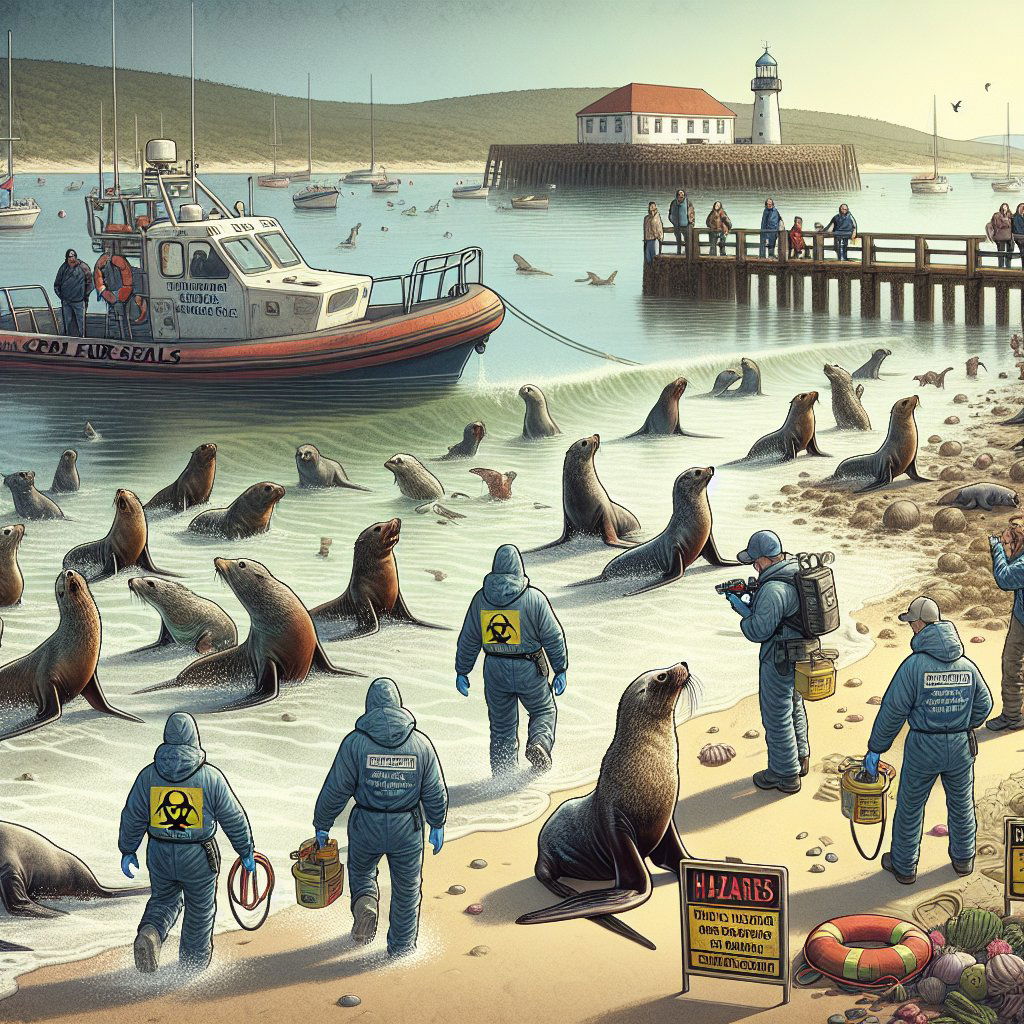Image created by AI
Rabid Seal Deaths in Mossel Bay Trigger Marine Health Concerns
In an unusual turn of marine health events, Mossel Bay has become the scene of a worrying occurrence as a second seal recently tested positive for rabies. The Stranded Marine Animal Rescue Team (S.M.A.R.T.), a dedicated organization involved in marine wildlife rescue, made the confirmation after testing a Cape fur seal that was spotted displaying signs of illness near the Hartenbos River mouth on August 12th.
The discovery comes in the wake of another rabies incident involving a seal that exhibited aggressive behaviour at a popular Mossel Bay swimming area on the 17th of July. This behaviour, which is out of character for the normally docile marine mammals, prompted immediate testing and subsequent confirmation of the disease.
S.M.A.R.T. spokesperson Val Marsh detailed the most recent incident, revealing that the affected seal bore visible wounds and was already deceased before intervention was possible. Found with blood along its neck and chest, as well as a bite mark to its head, the diagnosis of rabies provided a somber outcome.
These events have cast a spotlight on Mossel Bay and brought attention to the presence of rabies among seal populations, a phenomenon that Cape Town coastal manager Gregg Oelofse believes is unprecedented. Such occurrences of the rabies virus impacting marine mammals are rare and troubling for conservationists and marine health officials alike.
The Garden Route SPCA's spokesperson Elize Goosen has underscored the importance of public vigilance in the face of this outbreak. She calls on the local and visiting public to remain watchful of beach wildlife and to report any irregular behaviour observed among the seals. Dead seals have been found washing up along the Western Cape's beaches, signaling a need for heightened awareness and proactive reporting.
The situation in Mossel Bay has raised larger questions regarding marine animal health and the safety of those frequenting the coastal areas. While rabies is typically associated with terrestrial mammals, the spread of the disease to a marine mammal population presents a new set of challenges for wildlife rescue teams and health authorities.
S.M.A.R.T. continues their efforts in responding to marine animal emergencies while working in tandem with local bodies like the GRSPA to ensure the well-being of both the wildlife and the public. As research and observation continue, the coastal management teams are emphasizing caution and responsible behavior in and around the affected areas.
The recent confirmation of rabies in two seals in quick succession is a significant concern that places extra onus on cooperation between marine rescue organizations, veterinary services, and the public as a whole. It is a stark reminder of the intricate balance between human activities and the environment, and the ever-present need for conservation and vigilance.










